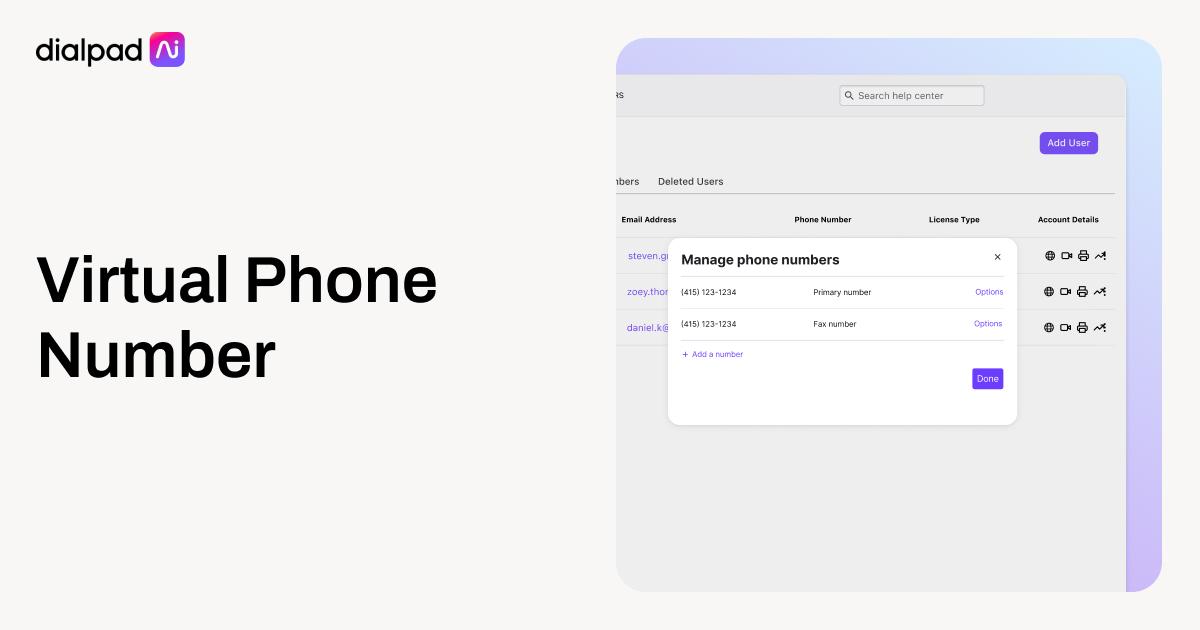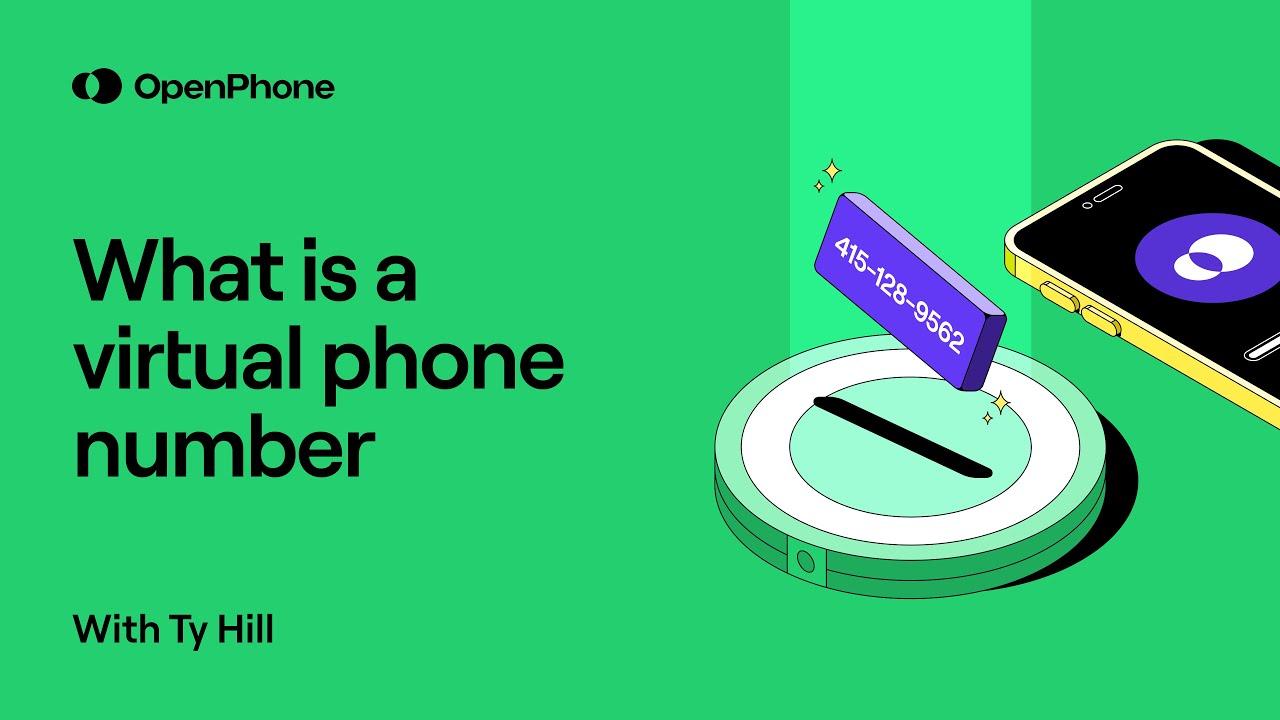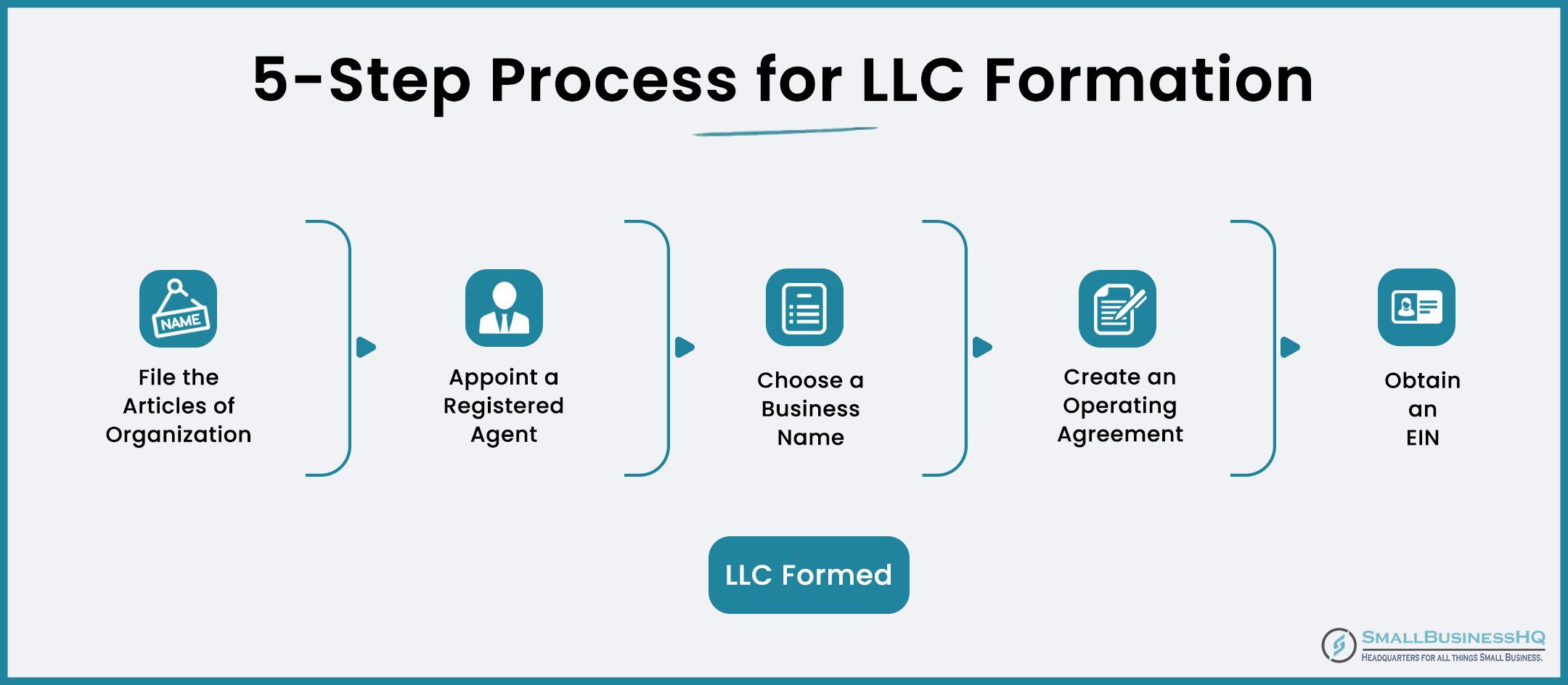
In the bustling world of business, effective communication is key to success. Imagine having a phone system that allows you to connect with clients and customers seamlessly, without the need for physical lines or complicated setups. Enter the virtual phone number—a powerful tool that can revolutionize the way you do business. Whether you’re a small startup or a well-established company, virtual phone numbers offer flexibility, professionalism, and a range of features designed to enhance your communication strategy. Curious about how it all works and which providers can give you the edge you need? Don’t worry, we’ve got you covered! In this article, we’ll break down the ins and outs of virtual phone numbers and introduce you to some of the top providers, so you can find the perfect fit for your business needs. Let’s get started!
Understanding Virtual Phone Numbers and Their Importance for Businesses
In today’s digital age, a virtual phone number has become an essential asset for businesses looking to enhance their communication strategy. Unlike traditional phone numbers, virtual phone numbers are not tied to a specific device or location. This flexibility allows businesses to maintain a professional image while enabling seamless communication with clients and partners from anywhere in the world.
One of the primary benefits of a virtual phone number is its ability to improve customer service. By providing a dedicated phone line, businesses can ensure that customer inquiries are handled promptly. This leads to increased customer satisfaction and loyalty, which are crucial for long-term success. Additionally, virtual phone numbers can help businesses manage call volume more efficiently, routing calls to the appropriate department or individual based on predetermined criteria.
Another critical aspect of virtual phone numbers is their role in fostering a global presence. With a virtual phone number, companies can establish local numbers in different regions without the need for a physical office. This not only makes it easier for international customers to reach out but also enhances the company’s credibility in new markets. It’s a cost-effective strategy for businesses aiming to expand their reach without the burden of significant overhead costs.
Moreover, virtual phone numbers often come equipped with advanced features that can elevate a business’s communication capabilities. Some of these features include:
- Call forwarding: Redirect calls to any phone, ensuring you never miss an important call.
- Voicemail-to-email: Receive voice messages directly in your email inbox for easy access.
- Auto-attendant: Provide callers with a professional greeting and menu options to direct their calls.
- Text messaging: Communicate with clients via SMS for quicker responses.
Security is another significant advantage of virtual phone numbers. By using a virtual number instead of a personal one, businesses can protect their privacy. This is particularly important for entrepreneurs and freelancers who often share their contact information publicly. With a virtual phone number, you can maintain your personal number’s confidentiality while still being accessible to clients.
When considering a virtual phone number for your business, it’s essential to choose a provider that aligns with your needs. Here’s a brief comparison of some top providers:
| Provider | Starting Price | Key Features |
|---|---|---|
| Grasshopper | $29/month | Call forwarding, voicemail transcription, and mobile app |
| RingCentral | $19.99/month | Video conferencing, team messaging, and cloud storage |
| Google Voice | Free with Google Workspace | SMS, voicemail, and integration with Google apps |
| Sideline | $9.99/month | Second number for calls and texts, team number sharing |
adopting a virtual phone number is a strategic move for businesses aiming to improve communication, enhance customer service, and expand their operations. By leveraging the flexibility and features that these numbers provide, you can position your business for growth in a competitive landscape. Investing in the right virtual phone number service can yield significant returns in terms of customer satisfaction and overall efficiency.
How Virtual Phone Numbers Function in Todays Digital Landscape
In today’s fast-paced digital landscape, the role of communication has evolved significantly, with virtual phone numbers leading the charge. These numbers serve as a bridge between businesses and their customers, providing flexibility and accessibility that traditional phone lines simply can’t match. By leveraging the power of the internet, virtual phone numbers allow businesses to maintain a professional presence without the need for physical infrastructure.
One of the primary features of virtual phone numbers is their ability to route calls seamlessly to any device—be it a mobile phone, desktop, or even a VoIP system. This flexibility is particularly advantageous for remote teams or businesses with employees in various locations. When a customer dials a virtual phone number, the system can intelligently forward the call to the appropriate person based on pre-set rules, ensuring that no call goes unanswered. This leads to enhanced customer satisfaction and a more efficient workflow.
Moreover, virtual phone numbers can come with a range of features that enhance business communication. Consider the following capabilities:
- Call Recording: Capture important conversations for training and quality assurance.
- Voicemail to Email: Receive voicemails as audio files directly in your inbox, ensuring you never miss important messages.
- Auto Attendant: Create professional greetings and menus that guide callers to the right department without needing a receptionist.
- Text Messaging: Engage with customers via SMS, allowing for quick responses and marketing campaigns.
Another significant advantage is the affordability of virtual phone numbers. Traditional phone systems can be costly due to installation fees and ongoing maintenance. In contrast, virtual numbers often operate on a subscription basis, with minimal setup costs. This not only saves money but also allows businesses to scale their operations effortlessly. Whether you are a startup or an established enterprise, you can easily add lines or features as needed without hefty investments.
Security is also a critical consideration in the digital age, and virtual phone numbers provide companies with enhanced privacy. By using a virtual number, businesses can keep their personal numbers private, safeguarding against unwanted calls or spam. This layer of security is essential in building trust with customers, as it shows that the business values their privacy.
When selecting a virtual phone number provider, it’s essential to consider various factors, including pricing, features, and customer support. Some of the top providers in the market offer comprehensive solutions that cater to specific business needs. Below is a simple comparison of popular virtual phone number providers:
| Provider | Key Features | Starting Price |
|---|---|---|
| Grasshopper | Auto-attendant, Voicemail transcription | $29/month |
| RingCentral | Video conferencing, Call recording | $19.99/month |
| Google Voice | Integration with Google Workspace, SMS capabilities | $10/month |
virtual phone numbers have become an indispensable tool in modern business communication. They provide flexibility, cost-effectiveness, and advanced features that help businesses stay connected and responsive. As more companies transition to digital-first strategies, integrating virtual phone numbers into their communication framework is not just an option—it’s a necessity for staying competitive.

Exploring the Benefits of Using a Virtual Phone Number for Your Business
In today’s fast-paced business environment, communication is key. Using a virtual phone number can transform how your business interacts with clients, partners, and employees. Here’s why incorporating a virtual phone number into your operations is not just beneficial but essential.
Enhanced Flexibility: A virtual phone number allows you to make and receive calls from anywhere in the world. Whether you’re working from home, traveling, or at the office, your clients can always reach you. This flexibility can significantly improve your responsiveness and customer service.
Cost-Effective Communication: Traditional phone systems can be expensive due to installation fees, hardware costs, and ongoing maintenance. Virtual phone systems, however, typically come with lower initial costs and are often subscription-based. This means you can easily manage your communication expenses and allocate resources more efficiently.
Professional Image: A dedicated virtual phone number gives your business a more professional appearance. Instead of using a personal phone number, a virtual line can enhance credibility and trust with clients. Additionally, you can choose local or toll-free numbers that cater to your target audience, making your business seem more accessible.
Advanced Features: Many virtual phone number providers come packed with features that can streamline your business operations. These features may include:
- Voicemail transcription
- Call forwarding
- Automated attendants
- Call analytics
These capabilities can help you manage calls more effectively, ensuring that no important communication slips through the cracks.
Scalability: As your business grows, your communication needs will evolve. Virtual phone systems are inherently scalable, allowing you to add or remove lines as necessary without the hassle of traditional phone systems. This adaptability means you can easily adjust to changes in demand, whether you’re adding team members or expanding your services.
Improved Work-Life Balance: With a virtual phone number, you can easily separate your personal and professional life. By using a dedicated line for business communications, you can avoid the stress of after-hours calls and ensure that you have time to recharge. This separation is crucial for maintaining a healthy work-life balance.
| Feature | Benefit |
|---|---|
| Voicemail Transcription | Read messages instead of listening |
| Call Forwarding | Never miss an important call |
| Automated Attendants | Streamlined call handling |
a virtual phone number is more than just a modern solution; it’s a strategic tool that can elevate your business communications. By embracing this technology, you can enhance flexibility, reduce costs, and provide a more professional experience for your clients. The advantages are clear—make the switch today and watch your business thrive.

Setting Up Your Virtual Phone Number: A Step-by-Step Guide
Setting up a virtual phone number for your business can be a game-changer, enhancing your communication strategy while maintaining professionalism. Here’s a straightforward guide on how to configure your virtual phone number seamlessly.
1. Choose Your Provider
The first step is selecting a reliable virtual phone number provider. Look for features that align with your business needs, such as:
- Voicemail services
- Call forwarding options
- Text messaging capabilities
- Multi-line support
Some of the top providers include RingCentral, Grasshopper, and Google Voice, each offering unique features catering to various business sizes and types.
2. Sign Up and Select Your Number
Once you’ve chosen a provider, the next step is to sign up for their service. During registration, you’ll often have the option to select your virtual number. Consider whether you want a:
- Local number – Great for businesses looking to establish a local presence.
- Toll-free number – Ideal for customer service-oriented businesses.
- Vanity number – A memorable option that reflects your brand.
3. Configure Call Settings
After obtaining your number, it’s time to customize your call settings. Most providers offer a user-friendly dashboard where you can set up:
- Voicemail greetings
- Call forwarding rules – Choose whether calls should be forwarded to your mobile or landline.
- Auto-attendant options – Allow customers to navigate through a menu for better service.
4. Integrate with Your Existing Systems
For a seamless experience, integrate your virtual phone number with your existing systems. Many providers offer integrations with CRM software, email platforms, and collaboration tools to streamline operations. This integration allows you to:
- Track customer interactions more efficiently.
- Manage contacts in one consolidated platform.
- Access call analytics for performance reviews.
5. Test Your Setup
Before fully launching your new virtual phone number, conduct several tests. Make calls, send messages, and ensure all settings function as intended. This step is crucial to identify any issues before your customers start reaching out.
6. Promote Your New Number
Once everything is set up and tested, it’s time to let your customers know about your new virtual phone number. Update your website, social media, and marketing materials to reflect this change. Consistent communication about your number helps build trust and reliability in your brand.
Key Features to Look for in a Virtual Phone Number Service
When selecting a virtual phone number service for your business, it’s critical to consider a variety of features that can enhance communication efficiency and effectiveness. Here are some essential aspects to keep in mind:
- Call Forwarding: Look for a service that offers flexible call forwarding options. This allows incoming calls to be directed to your mobile or landline number, ensuring you never miss a call, regardless of your location.
- Multiple Numbers: The ability to have multiple virtual numbers can be a game changer. This feature is particularly useful if your business operates in different regions or requires distinct lines for various departments.
- Voicemail and Transcription: Choose a provider that includes voicemail services along with transcription features. This enables you to read your messages as text, making it easier to manage and respond to inquiries promptly.
- Integration with Other Tools: Ensure that the virtual phone number service seamlessly integrates with your existing communication tools, such as CRM systems and email platforms. This integration can streamline workflows and enhance customer interactions.
Furthermore, consider the following additional features that can elevate your business communication:
- Analytics and Reporting: A robust reporting feature can provide insights into call volumes, duration, and other metrics. This data is invaluable for understanding customer engagement and improving service quality.
- Text Messaging Capabilities: Look for services that allow SMS communication. Text messaging can be a quicker way to reach customers and is often preferred for certain types of conversations.
- Mobile App: A dedicated mobile app enhances flexibility, allowing you to manage calls and messages on-the-go. This is especially important for businesses that require constant communication while working remotely or traveling.
- Customer Support: Reliable customer support is essential. Make sure the provider offers 24/7 assistance and multiple channels for support, such as live chat, email, and phone.
compare pricing plans across different providers to ensure you’re getting the best value for the features offered. Below is a simple table to help you evaluate key aspects of some top virtual phone number services:
| Provider | Call Forwarding | Voicemail Transcription | Text Messaging | Mobile App |
|---|---|---|---|---|
| Provider A | Yes | Yes | Yes | Yes |
| Provider B | Yes | No | Yes | No |
| Provider C | Yes | Yes | No | Yes |
| Provider D | No | No | Yes | Yes |
By evaluating these features and considering how they align with your business needs, you can select a virtual phone number service that not only meets but exceeds your expectations, paving the way for better customer relationships and improved operational efficiency.

Comparing Top Virtual Phone Number Providers for Business Needs
When selecting a virtual phone number provider, it’s crucial to align your choice with the specific needs of your business. Here, we’ll dissect some of the top contenders in the market, highlighting their unique offerings, pricing structures, and standout features to help you make an informed decision.
1. Grasshopper
Grasshopper is often praised for its user-friendly interface and robust features that cater to small businesses and entrepreneurs. Key benefits include:
- Multiple Extensions: Easily manage multiple departments or team members.
- Call Forwarding: Redirect calls to any device, ensuring you never miss an important call.
- Voicemail Transcription: Receive your voicemails as text messages, streamlining your communication.
2. RingCentral
If your business thrives on collaboration, RingCentral might be your best bet. This provider stands out with its comprehensive communication platform that includes:
- Video Conferencing: Seamlessly host virtual meetings.
- Team Messaging: Enhance internal communication with real-time chats.
- Integrations: Connect with popular apps like Salesforce and Google Workspace to enhance productivity.
3. Vonage
Vonage offers a scalable solution ideal for growing businesses. Its plans are flexible, allowing you to adjust as your workforce expands. Consider these features:
- Mobile App: Manage calls and messages from your smartphone.
- International Calling: Affordable rates for reaching clients worldwide.
- CRM Integration: Enhance customer interactions by integrating with existing CRM systems.
4. Ooma
For businesses looking for a straightforward and cost-effective option, Ooma is worth considering. This provider is known for its clarity and sound quality. Notable features include:
- Call Blocking: Protect your business from unwanted calls.
- Virtual Receptionist: Automate call answering to improve customer experience.
- Affordable Plans: Competitive pricing with no hidden fees.
5. Nextiva
Nextiva is geared towards businesses that require reliable VoIP services. Its features particularly shine in customer relationship management:
- Unified Communication: Combine voice, video, and messaging for a seamless experience.
- Advanced Analytics: Gain insights into call performance and customer interactions.
- 99.999% Uptime: Enjoy unparalleled reliability with minimal downtime.
Feature Comparison at a Glance
| Provider | Key Feature | Starting Price |
|---|---|---|
| Grasshopper | Multiple Extensions | $29/month |
| RingCentral | Video Conferencing | $19.99/month |
| Vonage | Mobile App | $19.99/month |
| Ooma | Call Blocking | $19.95/month |
| Nextiva | Unified Communication | $18.95/month |
Each of these providers brings something unique to the table, so consider your business size, budget, and required features before making a decision. A virtual phone number can significantly enhance your communication strategy, setting you up for success in today’s competitive business landscape.

Cost-Effectiveness of Virtual Phone Numbers: Save Money, Boost Flexibility
When it comes to running a business, every penny counts. One of the biggest advantages of virtual phone numbers is their cost-effectiveness. Traditional phone lines often come with hefty installation fees, monthly bills, and maintenance costs. In contrast, virtual phone numbers can significantly reduce your expenses, making them an attractive option for businesses of all sizes.
First off, there are no expensive hardware or installation costs associated with virtual phone numbers. With just an internet connection and a device, businesses can set up a virtual phone number in minutes. This means that whether you’re a startup or an established company, you can save money on upfront costs, allowing you to invest those funds elsewhere.
Moreover, virtual phone numbers provide flexibility that traditional phone systems can’t match. Since they operate over the internet, you can easily manage calls from anywhere, whether you’re in the office or working remotely. This means you’re not tied to a specific location, reducing additional costs related to office space or equipment.
Consider the flexibility in your calling plans as well. Many providers offer pay-as-you-go options or monthly subscriptions that allow you to choose a plan that best fits your needs. This adaptability can lead to substantial savings, especially for businesses with fluctuating call volumes. You can scale up or down without worrying about being locked into a contract.
Here’s a quick comparison of typical costs:
| Service Type | Average Cost | Notes |
|---|---|---|
| Traditional Phone Line | $50/month | Installation fees may apply |
| Virtual Phone Number | $10-$30/month | No installation, flexible plans |
Additionally, virtual phone numbers often include features that can save you even more money. These features might include:
- Call forwarding: Redirect calls to your mobile or other devices without additional fees.
- Voicemail-to-email: Receive voicemails directly in your inbox, making it easier to manage communications.
- Conference calling: Host virtual meetings without expensive conferencing systems.
Lastly, virtual phone numbers can enhance your business’s professional image. By having a dedicated business line, you can maintain a clear boundary between personal and professional communications, which contributes to better organization and customer trust—all without the overhead of a traditional phone system.
Enhancing Customer Communication with Virtual Phone Numbers
In today’s fast-paced business environment, effective communication is crucial for maintaining strong customer relationships. Virtual phone numbers offer a modern solution that not only simplifies communication but also enhances customer experience.
One of the key benefits of using virtual phone numbers is their ability to provide a local presence to customers, no matter where your business is based. This fosters trust and encourages customers to reach out, knowing they’re calling a number that feels local to them. Plus, with various area codes available, businesses can easily tap into new markets without the need for physical relocation.
Another significant advantage is the flexibility these numbers provide. Whether you’re running a small startup or a large corporation, virtual phone numbers can be tailored to suit your needs. You can:
- Route calls: Direct calls to the appropriate department or individual.
- Manage calls: Use features like call forwarding, voicemail, and automated greetings.
- Track interactions: Monitor incoming calls for insights into customer behavior and preferences.
Furthermore, virtual phone numbers can be easily integrated with existing communication tools and platforms. This means you can maintain seamless communication across various channels, from emails to live chats. The end result? An enhanced customer experience where support is always just a call away.
Security is another critical aspect, especially for businesses handling sensitive customer information. Virtual phone numbers can help safeguard privacy by keeping personal phone numbers separate from business communications. This not only protects your team but also assures customers that their information is treated with care.
Additionally, many virtual phone number providers offer advanced features such as:
- Call analytics: Gain insights into call patterns and customer engagement.
- Text messaging: Communicate with customers via SMS for appointments or promotions.
- International calling: Reach global customers without exorbitant fees.
When selecting a provider, consider factors like reliability, customer support, and pricing. Here’s a quick comparison of some top virtual phone number providers:
| Provider | Features | Starting Price |
|---|---|---|
| Grasshopper | Call forwarding, voicemail transcription, mobile app | $29/month |
| RingCentral | Video conferencing, team messaging, call recordings | $19.99/month |
| Google Voice | Voicemail, call screening, text messaging | Free with Google Workspace |
adopting virtual phone numbers can significantly enhance your customer communication strategy. By providing a reliable, flexible, and secure means of contact, you can improve customer satisfaction and drive business growth. With the right provider, you can leverage these benefits to create lasting relationships with your customers, ensuring they feel valued and heard.
Integrating Virtual Phone Numbers into Your Existing Business Tools
can create a seamless communication experience and enhance your overall productivity. These numbers are not just an added feature; they are a transformative solution for businesses looking to streamline operations and improve customer engagement.
One of the standout benefits of using virtual phone numbers is the ease with which they can be integrated into popular business tools. Consider the following integrations:
- Customer Relationship Management (CRM) Systems: Link virtual numbers directly to your CRM to automatically log calls, track customer interactions, and manage follow-ups more effectively.
- Team Collaboration Platforms: Integrating with tools like Slack or Microsoft Teams allows for instant notifications of incoming calls and messages, keeping your team connected without switching platforms.
- Email Clients: Forward calls to a designated number, and receive notifications via email, ensuring you never miss an important client call, even when you’re away from your desk.
Moreover, virtual phone numbers can enhance your marketing efforts. By integrating them with marketing automation tools, you can:
- Track Campaign Performance: Assign unique virtual numbers to different marketing campaigns to analyze which strategies yield the best results.
- Automate Responses: Set up automated replies for missed calls or messages, ensuring prompt communication with potential leads.
For businesses operating in multiple locations, virtual phone numbers provide a cost-effective way to establish a local presence. You can set up numbers that resonate with local customers, enhancing trust and reliability. This feature can be easily integrated into your existing systems, allowing for:
- Call Routing: Direct calls to the appropriate department or person based on geographic location, ensuring that customers always reach the right individual.
- Voicemail Transcription: Access transcribed messages in your email or CRM, allowing you to quickly respond to inquiries without needing to listen to every voicemail.
To illustrate how virtual phone numbers can enhance your business operations, here’s a simple comparison of features from top providers:
| Provider | Features | Starting Price |
|---|---|---|
| RingCentral | Call forwarding, Video conferencing, Text messaging | $19.99/month |
| Grasshopper | Custom greetings, Voicemail transcription, Call tracking | $29/month |
| Google Voice | Integration with Google Workspace, Call screening, Voicemail | Free for personal use, $10/month for business |
By choosing the right provider and effectively , you can unlock new levels of efficiency. The result? Better communication, enhanced customer satisfaction, and an overall boost in your operational prowess.
Real-Life Success Stories: Businesses Thriving with Virtual Phone Numbers
Addressing Common Concerns About Virtual Phone Numbers
When considering virtual phone numbers for your business, it’s natural to have some concerns. Here, we’ll tackle some of the most common questions and hesitations that arise when entrepreneurs and small business owners think about making the switch to a virtual solution.
1. Are virtual phone numbers secure?
Security is often a primary concern for businesses transitioning to virtual phone numbers. Most reputable providers implement robust security features, including:
- Encryption: Calls and messages are encrypted to protect sensitive information.
- Two-factor authentication: Adds an extra layer of security to your accounts.
- Fraud detection: Many services monitor for suspicious activity and alert you promptly.
Choosing a trusted provider is key to ensuring that your communications remain secure.
2. Will I lose my existing number?
Many businesses worry that adopting a virtual phone number means losing their existing one. Fortunately, most virtual phone service providers offer number porting, allowing you to keep your current number while adding new virtual lines. This means your customers can still reach you at the familiar number they’ve always dialed.
3. How reliable are virtual phone numbers?
Reliability is crucial, especially for businesses that rely on phone communication. Virtual phone numbers utilize Voice over Internet Protocol (VoIP) technology, which has advanced significantly. Here are some key points about reliability:
- Redundancy: If your primary connection fails, many providers offer backup systems to ensure that calls are still routed to you.
- Call quality: A stable internet connection ensures clear and uninterrupted communication.
- Global reach: Virtual phone numbers can effectively connect you with clients around the world without incurring massive international fees.
4. Are there hidden costs?
Another common concern is the potential for hidden fees. Most virtual phone providers offer transparent pricing structures. However, it’s essential to review the details before committing. Some cost factors to consider include:
- Monthly subscription fees
- Additional charges for international calls
- Costs for extra features such as voicemail transcription or call recording
Always read the fine print and compare different providers to find the best fit for your budget.
5. Will my team find it easy to use?
Ease of use is a major consideration, especially for teams that are not tech-savvy. Most virtual phone number services are designed with user-friendly interfaces and offer mobile apps for on-the-go access. Furthermore, training resources and customer support are typically available to assist your team in getting started. Consider opting for a provider that offers:
- Intuitive dashboards for managing calls and messages.
- Comprehensive tutorials and resources for onboarding.
- Responsive customer support to answer any questions that arise.
| Concern | Solution |
|---|---|
| Security | Choose providers with encryption and fraud detection. |
| Number Porting | Look for services that allow you to keep your current number. |
| Reliability | Ensure a stable internet connection and check for provider redundancy. |
| Hidden Costs | Read pricing details carefully before signing up. |
| User Friendliness | Select a provider with an easy-to-use interface and support. |
Best Practices for Managing Your Virtual Phone Number Effectively
Managing a virtual phone number effectively can significantly enhance your business communication. Here are some best practices to ensure you’re getting the most out of your virtual phone system:
- Choose the Right Provider: Not all virtual phone number providers are created equal. Look for features that align with your business needs, such as call forwarding, voicemail-to-email, and CRM integrations.
- Utilize Call Forwarding: Ensure you’re reachable no matter where you are. Set up call forwarding to your mobile or landline, or even to different team members depending on the time of day or their availability.
- Leverage Voicemail Features: Use voicemail greetings that reflect your brand’s personality. Also, consider transcribing voicemails to text for easy access and organization.
- Organize Contacts Efficiently: Keep your business contacts and clients organized within your virtual phone system. Make use of tags or categories to streamline communication and follow-ups.
Implementing these practices will help streamline your communication, but here are some additional strategies to consider:
| Feature | Benefit |
|---|---|
| Auto Attendant | Directs calls to the right department or person without human intervention. |
| Call Recording | Allows you to review conversations for quality assurance and training purposes. |
| Mobile Compatibility | Access calls and messages from your smartphone, ensuring flexibility on the go. |
It’s essential to regularly review your usage and adjust your virtual phone number settings accordingly. This can ensure that your system is always optimized for your current business size and needs:
- Monitor Call Metrics: Use analytics tools provided by your virtual phone service to track call volumes, durations, and outcomes. This data can help you identify trends and make informed decisions.
- Adjust Plans as Necessary: As your business grows, your communication needs may change. Don’t hesitate to upgrade or adapt your plan to ensure you remain efficient.
- Conduct Regular Training: Make sure your team is well-trained on the features of your virtual phone system. Regular workshops can enhance their skills and increase productivity.
Lastly, maintain a professional image at all times. Your virtual phone number is often the first point of contact for potential clients:
- Professional Greetings: Always use a friendly and professional greeting when answering calls.
- Consistent Branding: Ensure that your virtual phone number aligns with your business branding for a cohesive customer experience.
- Prompt Responses: Aim to respond to missed calls and messages promptly to demonstrate excellent customer service.
Future Trends in Virtual Phone Number Technology for Businesses
As businesses continue to adapt to a rapidly changing technological landscape, virtual phone number technology is set to evolve in exciting ways. One of the most prominent trends is the integration of artificial intelligence (AI) into virtual communication systems. AI-powered features like smart call routing and automated transcription can enhance customer interactions, allowing businesses to provide quicker and more efficient service.
Another trend to watch is the growing importance of omni-channel communication. Businesses will increasingly seek solutions that allow them to manage virtual phone numbers alongside messaging apps, email, and social media. This holistic approach not only streamlines communication but also ensures that customers receive a consistent experience, regardless of the medium they use to reach out.
As remote work continues to be a norm, the demand for cloud-based virtual phone systems is expected to surge. These systems offer unmatched flexibility, enabling employees to engage with clients from anywhere in the world. Companies are likely to invest in solutions that integrate seamlessly with their existing CRM systems, creating a more unified communication strategy.
Data security will remain a top priority as businesses rely more on virtual phone technology. Future advancements will likely focus on enhanced encryption protocols and secure cloud storage to protect sensitive information. Companies will want to ensure that their virtual phone providers adhere to stringent security standards, especially in industries like finance and healthcare.
Moreover, the rise of 5G technology will significantly impact virtual phone systems by providing faster, more reliable connections. This technology will enable smoother call experiences and facilitate the use of high-definition voice and video communication, making virtual interactions more personal and effective.
Businesses should also prepare for increasingly sophisticated analytics tools integrated into virtual phone systems. These tools can provide insights into customer behavior, call performance, and overall communication effectiveness. By leveraging data, businesses can fine-tune their strategies and improve customer engagement.
Lastly, as sustainability becomes a major concern for organizations, virtual phone technologies that emphasize eco-friendly practices will gain traction. Companies might seek providers that prioritize energy-efficient data centers, minimizing their carbon footprint while enjoying the benefits of virtual communication.
Getting Started: Choosing the Right Virtual Phone Number for You
Choosing the right virtual phone number can significantly enhance your business communication and customer engagement. With various options available, it’s crucial to evaluate your needs and preferences before making a decision. Here are some key considerations to help you select the perfect virtual phone number:
- Business Type: Consider the nature of your business. Are you a freelancer, a small business owner, or part of a larger corporation? Your communication needs may vary based on your industry and client base.
- Geographic Reach: Think about where your customers are located. If you have a local clientele, a local number may work best. If your customers are spread out, a toll-free or virtual number may be more suitable.
- Features Required: Identify the features that are most important to you, such as call forwarding, voicemail, SMS capabilities, or integration with existing software. Different providers offer different functionalities, so make sure to align these features with your business goals.
Next, consider the budget. Virtual phone numbers can vary in cost depending on the features and services offered. Here’s a quick comparison of cost considerations:
| Provider | Starting Monthly Cost | Key Features |
|---|---|---|
| Provider A | $10 | Call forwarding, voicemail, SMS |
| Provider B | $15 | Multi-line support, fax, conference calls |
| Provider C | $20 | CRM integration, analytics, toll-free numbers |
Another essential factor is customer support. When dealing with communication tools, having access to reliable customer service is crucial. Look for providers that offer technical support, online resources, and user-friendly interfaces. Reading reviews and testimonials can provide insight into the level of support others have experienced.
consider the scalability of the service. Your business may grow, and you’ll want a provider that can easily accommodate additional numbers or features as needed. Choose a solution that allows flexibility without incurring hidden fees or complicated upgrade processes.
By carefully assessing these factors, you can choose a virtual phone number that meets your needs and enhances your business operations. It’s not merely about having a phone line; it’s about how well that line works for you and your clients. Take your time, research your options, and invest in a solution that propels your business forward.
Frequently Asked Questions (FAQ)
Q&A: Virtual Phone Number for Business: How It Works (+ Top Providers)
Q1: What is a virtual phone number?
A: Great question! A virtual phone number is a telephone number that isn’t directly tied to a specific phone line or device. Instead, it routes calls to existing phone numbers—like your mobile or office line. Think of it as a bridge that connects your customers to you without revealing your personal number.
Q2: How does a virtual phone number work?
A: It’s pretty straightforward! When someone calls your virtual number, the call is forwarded to your chosen device—be it a smartphone, landline, or even an online platform. You can set up features like voicemail, call forwarding, and even text messaging, all designed to enhance your communication without the hassle of traditional phone systems.
Q3: What are the benefits of using a virtual phone number for my business?
A: There are so many benefits! First off, it enhances privacy. You can keep your personal number private while still being accessible to clients. It also gives your business a more professional image by allowing you to have a dedicated number, including local area codes, which can help with customer trust. Plus, many providers offer scalability, so you can easily add numbers or features as your business grows.
Q4: Is it expensive to get a virtual phone number?
A: Not at all! In fact, virtual phone numbers can be quite cost-effective. Many providers offer monthly plans that are affordable for businesses of all sizes. You often get more features than traditional phone lines without the hefty price tag. Think of it as a smart investment that can save you time and money in the long run!
Q5: How do I choose the right provider for a virtual phone number?
A: Look for providers that offer features tailored to your business needs. Do you need call forwarding, voicemail transcription, or SMS capabilities? Check for user-friendly interfaces and reliable customer support. It’s also wise to read reviews and possibly try a free trial if available. Some top providers to consider are Google Voice, Grasshopper, and RingCentral—they each have unique features that cater to different business styles.
Q6: Can I use a virtual phone number for texting?
A: Absolutely! Many virtual phone number services allow you to send and receive text messages, which is a fantastic way to communicate with customers or team members. Just make sure the provider you choose supports this feature if it’s important for your business!
Q7: Will I lose my virtual number if I change providers?
A: Not necessarily! Many virtual phone number providers offer “number porting,” which means you can transfer your existing number to a new provider if you decide to switch. Just check the specific policies of your provider regarding this feature.
Q8: Is a virtual phone number secure?
A: Yes, virtual phone numbers are generally secure, especially when you choose a reputable provider. They often utilize encryption and other security measures to protect your calls and messages. However, always take precautions, such as using strong passwords and enabling two-factor authentication where possible.
Q9: How can I get started with a virtual phone number for my business?
A: Getting started is easy! Research different providers, compare their features and pricing, and choose the one that fits your needs best. Once you’ve signed up, you can usually set up your number within minutes. Just follow their instructions, and you’ll be ready to connect with your customers in no time!
If you’re looking to streamline your communication and project a professional image, a virtual phone number is a fantastic solution for your business. What do you think? Ready to take the plunge?
The Conclusion
As we wrap up our exploration of virtual phone numbers for businesses, it’s clear that these powerful tools offer a game-changing advantage in today’s fast-paced digital landscape. Whether you’re a solo entrepreneur, a growing startup, or an established enterprise, adopting a virtual phone number can enhance your professionalism, improve customer communications, and even save you money.
With a variety of top-notch providers at your fingertips, you have the flexibility to choose a service that best aligns with your business needs. Imagine having the ability to separate your personal and professional calls seamlessly, manage your communications from anywhere, and portray a polished brand image—all without the hassle of traditional phone lines.
So why wait? Embrace the future of business communication today! Dive into the options we’ve discussed, weigh the features that matter most to you, and take the leap into a smarter way of connecting with your customers. Your business deserves it, and your clients will thank you for it. If you have any questions or need assistance in finding the right provider, feel free to reach out. Happy calling!






